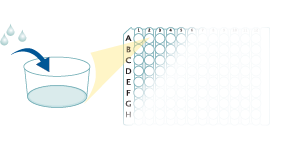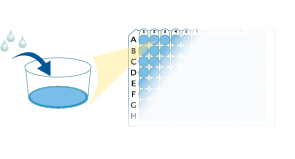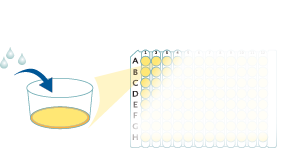 全部商品分类
全部商品分类



 下载产品说明书
下载产品说明书 下载SDS
下载SDS 用小程序,查商品更便捷
用小程序,查商品更便捷


 收藏
收藏
 对比
对比 咨询
咨询Recovery
The recovery of mouse Adiponectin spiked to three levels throughout the range of the assay in various matrices was evaluated.
| Sample Type | Average % Recovery | Range % |
|---|---|---|
| Cell Culture Supernates (n=7) | 103 | 82-115 |
| EDTA Plasma (n=4) | 92 | 81-106 |
| Heparin Plasma (n=4) | 93 | 77-110 |
| Serum (n=6) | 98 | 85-114 |
Linearity
Scientific Data
 View Larger
View LargerMouse Adiponectin/Acrp30 Quantikine ELISA Kit Changes in steroid hormone levels and adipokine levels in peripheral blood. (a) Testosterone. (b) Estradiol. (c) Corticosterone. (d) DHEA. (e) Leptin. (f) Adiponectin. For all groups, n = 8. Values are expressed as mean ± standard error. *P < 0.05, significantly different from the 3moR group. Image collected and cropped by CiteAb from the following open publication (https://www.nature.com/articles/s41598-017-12358-8), licensed under a CC-BY license. Not internally tested by R&D Systems.
Assay Procedure
Refer to the product- Prepare all reagents, standard dilutions, and samples as directed in the product insert.
- Remove excess microplate strips from the plate frame, return them to the foil pouch containing the desiccant pack, and reseal.
- Add 50 µL of Assay Diluent to each well.
- Add 50 µL of Standard, Control, or sample to each well. Cover with a plate sealer, and incubate at room temperature for 3 hours.
- Aspirate each well and wash, repeating the process 4 times for a total of 5 washes.
- Add 100 µL of Conjugate to each well. Cover with a new plate sealer, and incubate at room temperature for 1 hour.
- Aspirate and wash 5 times.
- Add 100 µL Substrate Solution to each well. Incubate at room temperature for 30 minutes. PROTECT FROM LIGHT.
- Add 100 µL of Stop Solution to each well. Read at 450 nm within 30 minutes. Set wavelength correction to 540 nm or 570 nm.





Mouse Adiponectin/Acrp30 Quantikine ELISA Kit Summary

Background: Adiponectin/Acrp30
Adiponectin (also known as Adipocyte complement-related protein of 30 kDa, Acrp30) is an adipocyte-derived protein with wide ranging paracrine and endocrine effects on metabolism and inflammation. It promotes adipocyte differentiation, fatty acid catabolism, and insulin sensitivity and is negatively correlated with obesity, type 2 diabetes, and atherogenesis. Adiponectin associates into 70 kDa noncovalently-linked trimers that are disulfide-linked into medium molecular weight hexamers and then into >300 kDa high molecular weight oligomers.








